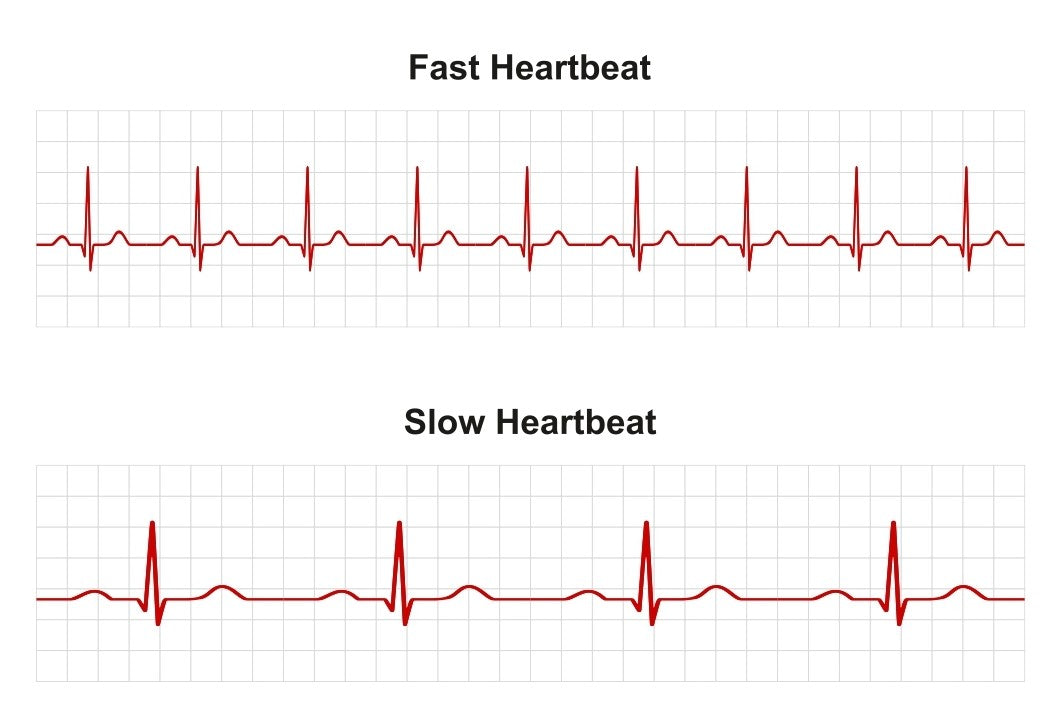Unhealthy Electrocardiogram: What Are the Signs and How Can You Prevent Them?

Unhealthy Electrocardiogram: Signs and Prevention
An electrocardiogram (ECG or EKG) is a vital tool used to monitor the electrical activity of the heart. An unhealthy ECG can reveal various abnormalities, indicating potential heart issues. Understanding these signs and taking preventive measures are crucial for maintaining heart health. This article explores the signs of an unhealthy ECG and provides tips for prevention, along with a recommendation for the PulseNexa's FitActive smartwatch, which offers advanced heart rate monitoring and alerts for high or irregular heart rates, as well as professional analysis of other ECG parameters such as QT interval.
Signs of an Unhealthy ECG
-
Irregular Heart Rate: An irregular heart rate, also known as arrhythmia, can be detected on an ECG. This may indicate conditions such as atrial fibrillation (AFib) or other types of arrhythmias.
-
Fast or Slow Heart Rate: A heart rate that is consistently too fast (tachycardia) or too slow (bradycardia) can be a sign of underlying heart issues.
-
Abnormal ECG Waveforms: Normal ECG waveforms should be regular and symmetrical. Abnormal waveforms can indicate problems such as ischemia, myocardial infarction (heart attack), or other cardiac issues.
-
QT Interval Abnormalities: The QT interval on an ECG represents the time between the start of the Q wave and the end of the T wave. An abnormally long or short QT interval can indicate an increased risk of arrhythmias or certain genetic heart conditions.
-
ST Segment Abnormalities: The ST segment on an ECG represents the period between ventricular depolarization and repolarization. An elevated or depressed ST segment can indicate conditions such as myocardial ischemia or infarction.
Prevention of Unhealthy ECG Readings
-
Maintain a Healthy Lifestyle: Eat a balanced diet, exercise regularly, maintain a healthy weight, and avoid smoking and excessive alcohol consumption.
-
Manage Stress: Practice stress-reducing techniques such as yoga, meditation, or deep breathing exercises to help manage stress levels.
-
Monitor Your Heart Health: Regularly monitor your heart rate and rhythm using devices like the PulseNexa's FitActive smartwatch, which provides alerts for high or irregular heart rates.
-
Follow Medical Advice: If you have been diagnosed with a heart condition, follow your doctor's advice regarding medication, lifestyle changes, and regular check-ups.
-
Seek Immediate Medical Attention: If you experience symptoms such as chest pain, shortness of breath, dizziness, or fainting, seek immediate medical attention.
PulseNexa's FitActive Smartwatch: A Heart Health Companion
The FitActive smartwatch from PulseNexa offers advanced heart rate monitoring capabilities, providing alerts for high or irregular heart rates. It also offers professional analysis of other ECG parameters such as QT interval, helping users track their heart health more effectively. With its user-friendly interface and accurate readings, the FitActive smartwatch is a valuable tool for those looking to monitor and maintain their heart health.
In conclusion, an unhealthy ECG can indicate various heart issues, but with proper monitoring and preventive measures, many of these issues can be managed or prevented. The PulseNexa's FitActive smartwatch is a reliable companion for heart health, offering advanced monitoring and analysis features to help users stay informed about their heart health status.

